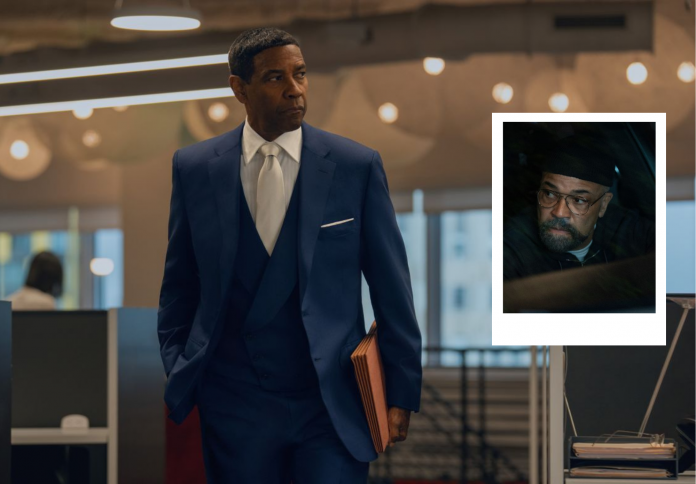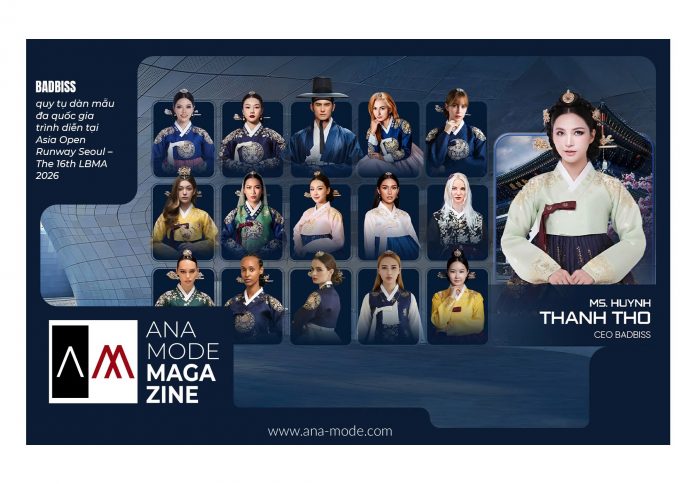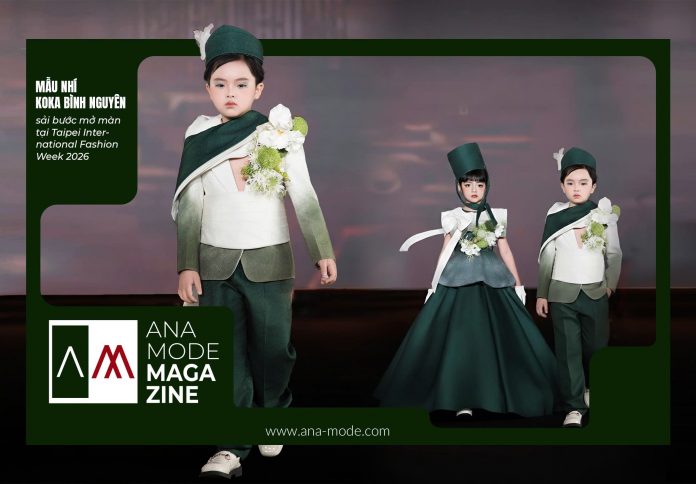Denzel Washington, a titan of cinema, has always chosen his roles with a discerning eye, yet even for a two-time Oscar winner, the realities of life sometimes demand a different kind of calculation. As he promotes his fifth collaboration with visionary director Spike Lee, “Highest 2 Lowest,” Washington reflects on a timeless piece of wisdom from his mother: “Do what you gotta do, so that you can do what you want to do.” This candid insight illuminates the often-unseen struggles even Hollywood’s elite face, as Washington humorously concedes to taking “money jobs” to support his four children and family. The film itself, a taut thriller exploring moral quandaries, offers a compelling backdrop for his reflections on balancing artistic integrity with life’s practical demands, hinting at the deeper themes explored both on screen and in his own illustrious career.
The Pragmatism of a Legend: “Do What You Gotta Do”
Denzel Washington’s career is a masterclass in cinematic excellence, consistently lauded for powerful, nuanced performances that have earned him two Academy Awards and a place among Hollywood’s most revered actors. Yet, even a legend like Washington has faced the pragmatic realities of life, particularly when starting a family. He openly shared a poignant piece of advice from his late mother that has clearly guided his path: “Do what you gotta do, so that you can do what you want to do – it’s not the other way around.” This philosophy underscores a period in his career where, despite his rising acclaim, some roles were undertaken not purely for artistic fulfillment but out of a necessity to provide. The public often perceives actors solely through the lens of their glamorous roles and accolades, overlooking the foundational efforts required to build a stable life, especially when raising a family.

Washington candidly pointed to the “mid-’90s” as a period where he accepted roles that were perhaps not “good money” in the artistic sense, but were essential for his household. While he politely declined to name specific films, a glance at his filmography from that era reveals a mix of critically acclaimed hits like “Crimson Tide,” “Philadelphia,” and “The Pelican Brief” alongside a few less distinguished titles. It’s these latter projects, often deemed “duds” by critics or less memorable by audiences, that Washington implicitly refers to as the “money jobs.” As his co-star Jeffrey Wright playfully interjected, perhaps some were “for the kids,” to which Washington quickly corrected: “More than a couple for the kids – and the wife, and the house, and the bank, and everybody else.” This self-deprecating humor highlights the universal pressure of financial responsibility, even for a blossoming superstar, and ultimately underscores the foundational sacrifices that paid significant dividends, with all four of his children – John David, Olivia, Malcolm, and Katia – now thriving in various facets of the entertainment industry.
“Highest 2 Lowest”: A Moral Thriller for Modern Times

Washington’s latest cinematic endeavor, “Highest 2 Lowest,” marks his highly anticipated fifth collaboration with visionary director Spike Lee, and their first reunion since the critically acclaimed 2006 thriller “Inside Man.” The film is a profound reimagining of Akira Kurosawa’s 1963 classic “High and Low,” which itself was based on Evan Hunter’s 1959 novel “King’s Ransom.” Transposing the original’s Japanese shoe executive to the bustling, high-stakes world of the New York music business, the new film centers on David King, Washington’s character, a powerful record executive on the cusp of a monumental business deal that could redefine his legacy. This intricate narrative quickly plunges King into a harrowing moral quandary that forms the beating heart of the thriller.
The ethical crisis at the core of “Highest 2 Lowest” is both agonizing and deeply resonant. King initially believes his own son has been kidnapped, setting in motion a desperate scramble to secure a massive ransom. However, the plot takes a devastating turn when he discovers the kidnapper (played by A$AP Rocky) has mistakenly abducted the son of his chauffeur, Paul (Jeffrey Wright). The critical question then becomes: Should King still pay the exorbitant ransom, a sum so vast it would completely drain his bank accounts and scuttle his meticulously planned deal to regain control of his company? What seemed like an unambiguous, clear-cut decision when his own “flesh and blood” was at stake becomes profoundly muddied when the life in jeopardy is someone else’s child. The film thus forces a stark examination of wealth, social responsibility, empathy, and the intrinsic value of human life when pitted against personal ambition and financial ruin.
Art, Commerce, and the Digital Divide
“Highest 2 Lowest” is not merely a gripping thriller; it’s a shrewd commentary on the intersection of art, commerce, and the relentless march of technology within creative industries. Interestingly, David King, Washington’s character, shares more than a few striking parallels with Spike Lee himself. Both are depicted as cultural titans, navigating their careers at a stage where they are acutely aware of their legacies while still driven by an unquenchable thirst to create. They find themselves balancing the demands of artistic integrity with commercial viability, all against the backdrop of technological disruption pulling their respective industries in entirely new directions. A particularly fascinating detail that blurs the line between fiction and reality is the exquisite personal art collection seen in David King’s on-screen home — these are, in fact, meticulous copies of real paintings belonging to Spike Lee, featuring works by luminaries like Jean-Michel Basquiat, Tim Okamura, and Kehinde Wiley, underscoring their shared aesthetic sensibilities.

However, while these parallels exist, the film also highlights a crucial divergence in their approach to technological change. Spike Lee has consistently demonstrated a willingness to embrace new industry players and distribution models; his powerful film “Da 5 Bloods,” for instance, was distributed by Netflix in 2020, and “Highest 2 Lowest” itself will debut on Apple TV+ after its theatrical run through A24. In stark contrast, David King is portrayed as deeply wary, even hostile, towards technological disruption in the music business. His character rails against the perceived soullessness of AI-generated music, dismisses new artists who primarily gain following through social media, and expresses palpable frustration with his own son’s Instagram addiction. This tension underscores a generational and philosophical divide within creative fields, as articulated by Jeffrey Wright, who reflected on technology’s broken promise of harmony: “We were promised harmony; that technology was going to make us wiser, more democratic, more peaceful. That has not been the case. In fact, it’s been the opposite.”
Denzel’s “Zen Era”: Beyond the Digital Noise
While his character David King grapples with the perils of modern technology, Denzel Washington himself maintains a remarkably detached perspective from the digital world. When asked if he shares his character’s concerns about tech disruption and social media, Washington’s answer is a resounding “no.” He clarifies, “They don’t affect me to the degree that they affect the character, because I don’t rely on those things for my happiness or my peace. I don’t make money off those kinds of things.” This statement reveals a profound sense of inner tranquility and self-reliance that transcends the fleeting trends of digital engagement. For Washington, true fulfillment and peace are not derived from online validation or the constant churn of the internet, but from deeper, more personal sources.
This perspective aligns perfectly with what could be described as Denzel Washington’s emerging “zen era.” Having been baptized and becoming a minister at the end of 2024, the acting legend seems content to glide through life, reeling off aphorisms about fame and filmmaking with a calm, assured demeanor. He appears to be consciously crafting his own mystique, taking subtle “shots” at the excesses of celebrity while gracefully walking backwards into a more private existence. His famed warning to younger actors, reportedly including Michael B. Jordan, about the dangers of over-exposure — “If they see you for free all week, they won’t pay for you at the weekend” — speaks volumes about his strategic approach to maintaining allure and value in an increasingly commodified industry. It’s a lesson in scarcity and desirability, delivered by a master who understands the long game.
Guarding the Mystique: A Lesson in Legacy
Denzel Washington’s approach to public life is a stark contrast to the omnipresent celebrity culture of today. For anyone hoping to catch a glimpse of the actor on Instagram or other social media platforms, he offers a clear, unequivocal warning: “All those so-called Instagram accounts, if my name is connected it, you’ve been had. You’ve been took. Hoodwinked. Bamboozled.” He delivers this message with a gleeful, almost mischievous, tone, underscoring his complete detachment from and disdain for online impersonations and the superficiality of digital fame. His refusal to engage in social media is not merely a personal preference; it’s a deliberate, strategic choice that protects his privacy and enhances his enduring mystique as one of cinema’s most revered figures.
His career, defined by a consistent string of “gems” that punctuate the occasional “money jobs” from his past, serves as a powerful testament to this guarded approach. It’s a masterclass in how to build and sustain a monumental legacy by carefully curating one’s public presence. Denzel Washington remains an enigmatic force, primarily experienced through the raw power and profound depth of his performances on the big screen. He cultivates a quiet dignity that stands in stark contrast to the relentless self-promotion of the digital age, proving that in a world clamoring for constant access, true influence and lasting reverence often stem from what is withheld, rather than what is revealed. “Highest 2 Lowest” will be released in US cinemas on August 15, offering audiences another chance to witness his unparalleled talent, exactly where he prefers to be seen.










